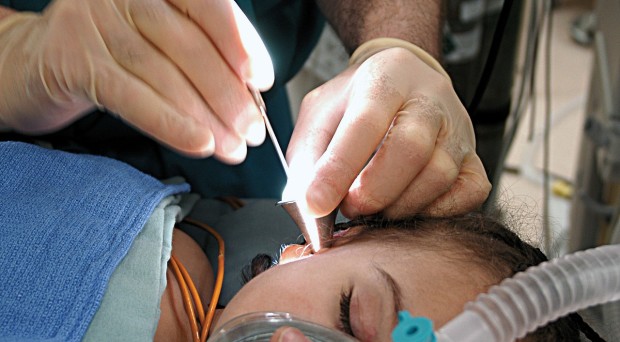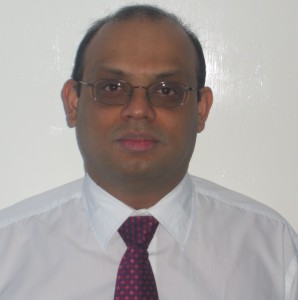

BMC Ear, Nose and Throat Disorders has led the way in open access publishing of otolaryngology research for over a decade. Until now, and like the other journals in the BMC series, it has been the responsibility of an Executive Editor at BioMed Central. However, as the field continues to grow we are delighted to announce today the appointment of an Editor-in-Chief, Professor B. Nirmal Kumar from Wrightington, Wigan and Leigh NHS Foundation Trust, to lead the journal’s development.
For most of the BMC-series journals, the Executive Editor is supported by subject-specialist academic Section Editors. For BMC Ear, Nose and Throat Disorders, a small journal in a diverse field, it made sense for the whole journal to fall under the responsibility of one Editor-in-Chief who would be able to provide an overarching vision for the journal. Of course, as part of the BMC series, the journal will still uphold our ethos of being open, inclusive and trusted.
From this week the journal will be divided up into five sections, covering the wide and exciting world of ENT research. The Ear Disorders section aims to cover otology research including dizziness, tinnitus and hearing loss. In the Head and Neck Disorders section we hope to publish not only cancer-related research but also studies about surgery (including reconstructive surgery), unified airway, thyroid and endocrine disorders.
Meanwhile, rhinology and research related to allergies and olfactory dysfunction will be covered by the Nose Disorders section and laryngology will be in the Throat Disorders section. We also want to pay special attention to Pediatric ENT Disorders, and will continue to encourage submissions describing approaches to treating conditions in children. To help our Editor-in-Chief we have called on panel of experts to join our Editorial Board as Associate Editors.

To mark the launch of the new editorial model today, we’ve asked Professor Kumar to tell us more about himself and his plans for the journal.
What inspired you to study medicine?
Medicine was not something I aspired to study in early childhood and I almost came into it accidentally. In fact, having been born with a congenital deformity, and requiring multiple procedures in childhood, seemed to give me an insight into the field of medicine much before I set out to study it, and you could say I had a head start!
I have a very big interest in teaching and research. I strongly believe that passing on skills to the next generation is a great privilege and especially watching people grow and do things better than you, is gratifying.
Close to that is research and the expansion of knowledge. I say to young researchers that they should make small steps but constantly expand the frontiers of our profession. I was privileged to work under colleagues who were really keen on the idea of “the thinking surgeon” which is no longer an oxymoron!
Why did you decide to get involved with publishing?
The approach to become Editor-in-Chief came to me at the right time in my career. I had gradually increased my research portfolio starting with clinical and basic science research and had published fairly widely in the field of ENT. I had also been PI and CI in NIHR trials and had led R&D in my Trust and also a trainee research collaborative was established in the NW training programme under my auspices.
What do you hope to achieve as Editor-in-Chief of BMC Ear, Nose and Throat Disorders?
As Editor-in-Chief I hope to popularize research and publishing in the next generation of trainees both in ENT and also earlier in careers when young trainees are in their Foundation Years. I strongly believe that research must be encouraged in as wide a group as possible in the medical fraternity and not just left to a few ‘hard core’ of researchers.
What do you think the future holds for the ENT field?
ENT is in an exciting time with qualitative research into patient related outcomes being the crying need, while not neglecting improving the understanding and management of some chronic debilitating conditions which while not immediately life threatening reduce the health of the population. As clinicians in the field it is important for us to engage with patients and provide the best clinical care possible while embracing new technologies and supporting innovation.
Comments